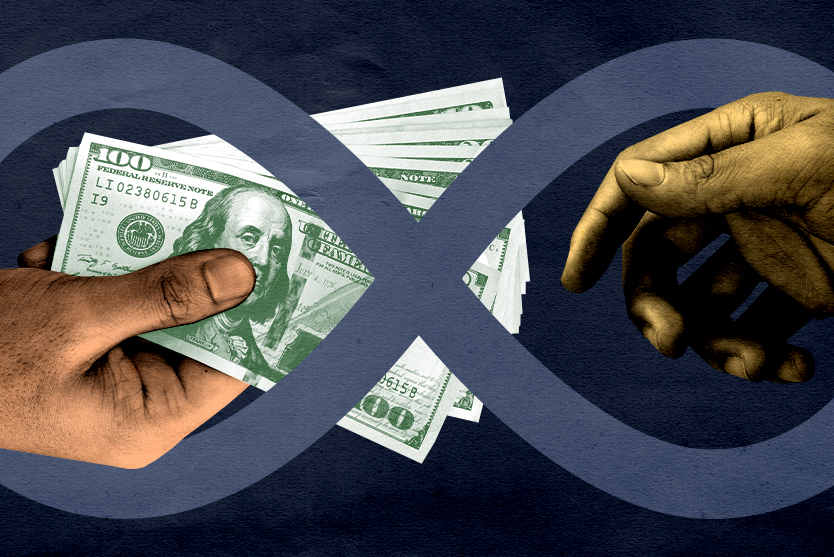Democrats just slashed poverty. Now they need to make it permanent.


A free daily email with the biggest news stories of the day – and the best features from TheWeek.com
You are now subscribed
Your newsletter sign-up was successful
The House of Representatives passed the American Rescue Plan, a $1.9 trillion pandemic relief measure, on Wednesday. It now goes to President Biden for his signature. This will have an extraordinary poverty-fighting effect. An Urban Institute analysis found: "Poverty would fall about 42 percent for Black, non-Hispanic people, 39 percent for Hispanic people, and 34 percent for white, non-Hispanic people." This will be by far the biggest attack on American poverty since the 1960s.
However, most of the big parts of the bill last just one year, which is obviously not ideal. This includes the expansion of the Child Tax Credit, which is probably the most important poverty-fighting measure overall, because the biggest group of people in deep poverty are single-parent families. Democrats' initial idea was to make the expanded CTC (which is much larger and now no longer requires labor income to claim) permanent, but the plan couldn't get through the Senate reconciliation process that way. That's a simple matter of passing a permanent bill, perhaps with some tax hikes to compensate.
While they're at it, Democrats should fix some technical problems with the expansion. The IRS will be sending out advance CTC checks each month, but based on annual qualification metrics. Instead the Social Security Administration should be sending out the checks, with whatever means test Democrats want to apply done through taxes.
The Week
Escape your echo chamber. Get the facts behind the news, plus analysis from multiple perspectives.

Sign up for The Week's Free Newsletters
From our morning news briefing to a weekly Good News Newsletter, get the best of The Week delivered directly to your inbox.
From our morning news briefing to a weekly Good News Newsletter, get the best of The Week delivered directly to your inbox.
Additionally, while the CTC expansion will greatly help a lot of very desperate people who will still not quite be pushed over the official poverty line, the Urban Institute analysis finds that the part of the bill that reduces top-line poverty the most is the round of $1,400 assistance checks, which by itself will cut the poverty rate by 3.5 percentage points. There's no reason why the $1,400 checks — which are extraordinarily popular — can't also be made permanent. As Matt Bruenig suggests at the People's Policy Project, we could consider it a universal holiday bonus for all.
A free daily email with the biggest news stories of the day – and the best features from TheWeek.com
Ryan Cooper is a national correspondent at TheWeek.com. His work has appeared in the Washington Monthly, The New Republic, and the Washington Post.
-
 Antonia Romeo and Whitehall’s women problem
Antonia Romeo and Whitehall’s women problemThe Explainer Before her appointment as cabinet secretary, commentators said hostile briefings and vetting concerns were evidence of ‘sexist, misogynistic culture’ in No. 10
-
 Local elections 2026: where are they and who is expected to win?
Local elections 2026: where are they and who is expected to win?The Explainer Labour is braced for heavy losses and U-turn on postponing some council elections hasn’t helped the party’s prospects
-
 6 of the world’s most accessible destinations
6 of the world’s most accessible destinationsThe Week Recommends Experience all of Berlin, Singapore and Sydney
-
 The dangerous vigilantism that fueled Jan. 6
The dangerous vigilantism that fueled Jan. 6Talking Point
-
 The real reason the Pentagon is sounding the alarm over China's hypersonic missile
The real reason the Pentagon is sounding the alarm over China's hypersonic missileTalking Point
-
 China's ominous incursions over Taiwan
China's ominous incursions over TaiwanTalking Point
-
 Is Bibi-ism possible without Bibi?
Is Bibi-ism possible without Bibi?Talking Point
-
 The Derek Chauvin solitary confinement predicament
The Derek Chauvin solitary confinement predicamentfeature
-
 Keith Ellison's strategy in the Derek Chauvin trial paid off
Keith Ellison's strategy in the Derek Chauvin trial paid offfeature
-
 Injustice for everyone?
Injustice for everyone?feature
-
 If Andrew Cuomo won't resign, he must be impeached
If Andrew Cuomo won't resign, he must be impeachedfeature
